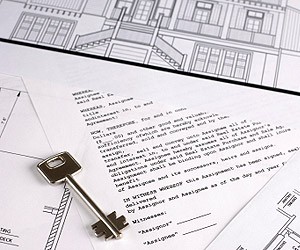Commercial leases form part of many business transactions and commercial property is a popular investment choice. Whether you are a tenant or landlord, there is much to consider when entering into a commercial lease.
Some commercial leases are classified as ‘retail’ and fall under specific legislation operating in various States. With the increase of retail shopping complexes over the years, these laws were introduced to improve the position of a lessee in circumstances that often favoured a dominant owner of a retail centre.
Landlords leasing retail premises have specific obligations such as issuing prospective tenants with a disclosure statement, draft lease and tenancy guide prior to entering into the lease. The laws also prescribe other matters such as minimum lease terms, how rent reviews operate and assignment provisions.
Most lease disputes arise because the parties are unaware of their rights and responsibilities, or the terms of the lease are ambiguous.
A lease should always be in writing and we recommend involving your lawyer in the preparation and review of any documents before committing to a lease.
This article explores some common terms of a commercial lease and flags important issues so that potential traps might be avoided.
Defining the area to be leased
To avoid any doubt about what area is being leased, the premises must be accurately described. This means including details such as shop or unit numbers, building names, street addresses and a full legal description of the property.
Where the leased premises forms part of a larger space, a floor plan should be attached to the lease with relevant areas highlighted and noting the measurements of the lettable area.
The lease should also include terms regarding agreed use of car spaces, storage facilities and common areas or amenities to be shared with other tenants.
The term of the lease
The term of the lease and renewal options must be carefully considered. From a tenant’s perspective lease terms should match business plans. For example, if the premises will be used to run a franchise business, the franchise agreement and renewal options should coincide with the lease. Tenants should also consider trying to coordinate their service provider contracts (i.e. telephone and internet) with the lease terms.
Leases containing an option to renew will set out a time period within which a tenant can exercise (give notice) of the option. Option periods are construed strictly by the courts and should be diarised to avoid missing out on renewing the lease.
Landlords should review lease terms in light of their investment strategy, loan commitments and any plans to sell the property in the future. If a proposed sale is imminent then consideration can be given to whether the property is more marketable with a long-term lease or one that will expire before or soon after the property is transferred. Renewal and expiry dates should be diarised to plan for marketing the property to prospective new tenants to avoid lengthy vacancy periods.
Permitted use of premises
The lease should clearly state the permitted use of the premises. Despite what is noted in the lease however, it is a tenant’s responsibility to ensure the proposed use of the premises complies with the zoning and any other Council requirements and any necessary licences or permits are obtained.
A lease containing broad usage terms makes it easier for the tenant to assign the lease, if necessary. Landlords may however wish to restrict the permitted use to avoid the premises falling within the retail definition or to have control over the general mix of outlets within a larger complex.
Outgoings
The responsibility for payment of outgoings is a common trap – the parties should be very clear about who must pay for what and in what proportions. Disputes are usually resolved by interpreting the terms of the lease so careful drafting now will reduce costly misunderstandings down the track.
Tenants are usually responsible for utility services, ongoing repairs and maintenance, rates and taxes, cleaning, gardening and security. A tenant may be responsible for all or a portion of these services and an estimate of outgoings should always be obtained prior to committing to the lease.
In retail leases, certain types of expenses recoverable as outgoings may be prohibited or limited and landlords must provide tenants with comprehensive details of the outgoings payable and how they will be calculated.
Rent and rent reviews
The obligation to pay rent is an essential term of the lease. A tenant’s financial plan should include rent for the entire term and any increases pursuant to a rent review. The frequency of and method for reviewing rent should be stated clearly. Rent review methods are usually by increases in the Consumer Price Index, market review or a set percentage on each anniversary of the lease.
Most landlords request rent in advance, a security bond, a bank guarantee or combination of these to ensure compliance with the tenant’s obligations under the lease.
Fitout and refurbishment
Lease negotiations often involve the fitting out of the premises for the proposed use by the tenant. Any agreement reached should be documented and include:
- The fixtures and fittings to be installed including reference to the agreed quality and standards;
- Who is responsible to carry out the work and pay for it – landlords should sight and approve fitout plans;
- Whether a rent-free period is allowed whilst work is being carried out;
- The obligation to refurbish or to restore the leased premises to its original condition at the end of the lease (i.e. “make good”);
- Whether the fixtures may be removed by the tenant after the lease expires.
Balancing the rights of the landlord and tenant
In exchange for paying rent and carrying out the obligations under the lease, a tenant is entitled to uninterrupted possession of the premises and should be free to conduct its business in accordance with the permitted use.
The tenant must keep the premises in good repair however this does not extend to carrying out structural repairs.
Distinguishing between repairs and maintenance and structural repairs has been the cause of many lease disputes. Ideally, the interests of both parties should be balanced with any agreement to contribute towards capital works, fixtures and fittings set out in the lease.
Assignment clauses allowing the tenant to assign the lease with the landlord’s consent are desirable for the tenant, particularly if the tenant is starting a new business where prospects of success are unknown. From the landlord’s perspective, such clauses should ensure there is no disruption to rental income and allow for reasonable assignment costs.
The process for obtaining consent and assigning the lease should be understood by all parties.
Checking the facts, registration and consents
Tenants and landlords need to know who they are dealing with. Your lawyer will review title searches, plans and company searches to confirm that the parties and premises in the lease are accurate. A title search will show other interests in the property such as a mortgage. If the property is mortgaged, the bank’s consent to the lease should be obtained .
Conclusion
Leases should be in writing and include all terms that have been agreed to between the parties. Investing time and effort to have your lease reviewed before allowing or taking possession of the premises may avoid potential disputes, inconvenience and future loss.
Remember, additional considerations apply if your proposed leasing arrangement is caught by retail lease legislation. Your lawyer can confirm this and ensure that the documentation and process complies with the landlord’s legal requirements. If you are a tenant leasing retail premises, then your lawyer will ensure that your rights are fully explained and protected.
If you need expert advice regarding a commercial lease, please contact us on (03) 9592 3356 or email office@citypacific.com.au


